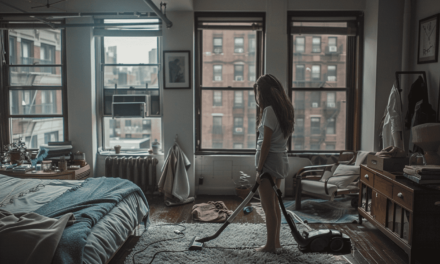Ever notice how shattered you feel after a long night? Gone are the days when we could bounce back from a late sleep. Now, imagine doing that for a living or fun. In our non-stop world, millions push through the night. Nurses check vitals, factory workers keep production lines moving, and emergency responders stand ready—all fighting their bodies’ desperate plea for sleep.
Meanwhile, business travelers know the zombie-like feeling of crossing oceans for meetings, their internal clocks completely scrambled. Making matters worse, our constant connection to screens—checking emails at 3 AM, scrolling through social media during sleepless nights, or using devices until bedtime—adds another layer of biological stress. The blue light from these devices suppresses our natural melatonin production, making quality sleep even more elusive for shift workers and travelers alike.
These disrupted schedules aren’t just uncomfortable; they fight against our basic biology. Our bodies spent thousands of years perfecting the sunrise-sunset rhythm, making night shifts and jet lag utterly foreign to our inherent primordial biology. Scientists studying circadian rhythms are increasingly concerned about how these disruptions affect our health over time.

“The hardest part isn’t staying awake during the work,” Sarah explains, adjusting the blackout curtains in her bedroom. “It’s trying to sleep when your body insists it should be awake. When the sun shines and the world is noisy, your brain doesn’t want to shut down.”
Sarah Martinez has worked the overnight shift at Memorial Hospital for eight years. While her patients sleep, she monitors vital signs, administers medications, and responds to emergencies in the quiet, dimly lit corridors. By the time she drives home at 7 AM, the morning rush hour begins—people heading to work as her workday ends.
“The hardest part isn’t staying awake during the work,” Sarah explains, adjusting the blackout curtains in her bedroom. “It’s trying to sleep when your body insists it should be awake. When the sun shines and the world is noisy, your brain doesn’t want to shut down.”
Sarah’s experience reflects a fundamental biological challenge that approximately 20% of the global workforce faces. Our bodies operate on a 24-hour circadian rhythm cycle that governs everything from hormone production to body temperature, alertness, and sleep patterns. This internal clock is primarily synchronized by light exposure, with darkness triggering melatonin production to prepare the body for sleep.
Night shift workers like Sarah essentially force their bodies to function in direct opposition to these natural biological signals, creating what sleep scientists call “circadian misalignment.”
“When people work against their circadian rhythm, they’re not just feeling tired—they’re experiencing a complex cascade of biological disruptions,” explains Dr. Elena Patel, neurologist and sleep medicine specialist. “The body never fully adapts because environmental cues—sunlight, social schedules, and community patterns—constantly pull it back toward a daytime schedule.”
Research has linked this persistent misalignment to concerning health outcomes: night shift workers and night owls face higher rates of metabolic disorders, cardiovascular disease, mood disorders, and even certain cancers. In 2019, the International Agency for Research on Cancer classified night shift work as a “probable carcinogen” due to its disruption of circadian rhythms.
For Sarah, the effects are both immediate and cumulative. “There are days when I’ve slept maybe three broken hours before getting up for my next shift. My body never knows if it should be hungry for breakfast or dinner. And remembering simple things can be a struggle when you’re constantly sleep-deprived.”
“The perimenopausal transition already disrupts sleep architecture due to fluctuating estrogen and progesterone levels.
When you layer night shift work on top of that, it creates a perfect storm,” explains Dr. Wells.

Perimenopause and Sleep
For women approaching perimenopause, night shift work can compound already challenging hormonal transitions. Dr. Simone Wells, an endocrinologist specializing in women’s health, notes that perimenopausal women on night shifts often report more severe symptoms. “The perimenopausal transition already disrupts sleep architecture due to fluctuating estrogen and progesterone levels. When you layer night shift work on top of that, it creates a perfect storm,” explains Dr. Wells. “We see exacerbated hot flashes, increased mood volatility, and accelerated bone density loss in some patients.” Studies suggest that melatonin suppression from nighttime light exposure can further interfere with reproductive hormones, potentially hastening the onset of menopause and intensifying its symptoms. Many women report that managing perimenopausal symptoms becomes significantly more difficult when working nights, creating a challenging feedback loop where hormonal changes disrupt sleep, and disrupted sleep worsens hormonal symptoms.
Evidence-based strategies that can help mitigate the impacts of late nights.
Sleep Hygiene:
Sleep specialist Dr. Patel recommends: “Use blackout curtains and/or weighted eye pillows and blankets. Wear blue-light-blocking glasses during your late nights to offset devices and lights that can trick the brain into thinking it’s still daytime. Consistent pre-sleep rituals such as turning off devices 30 minutes before bed, self-massage (foot and facial one are good), and writing down all your to-dos and worries in a nighttime journal are very beneficial. Also, keeping the bedroom designated only for sleep signals the brain to sleep.”
Nutrition & Supplements:
Nutritional timing also plays a crucial role. “Eating heavier meals earlier in your shift and avoiding food right before sleep can help minimize digestive disruptions,” advises nutritionist Maya Wong. Research the best times to take supplements, and know which ones not to take at night; for example, Vitamin B can make a difference. Conversely, taking magnesium at night works well. Encorporate drinks like tart cherry, chamomile tea, and warm milk can assist with getting sleepy.
For perimenopausal women, Dr. Wells suggests discussing hormone therapy options such as HRT patches with Progestrone, which helps manage the compound effects of shift work and hormonal changes.
Nervous system regulating therapies:
Some night shift workers benefit from carefully timed light therapy to help reset their circadian clocks. In contrast, others find short 20-minute naps before shifts beneficial, especially when they are emotional and overwhelmed. Practices like Yoga Nidra, Restorative Yoga, and Yin Yoga all help soothe the nervous system, from a sympathetic nervous response (fight and flight) to a parasympathetic nervous response of rest and digestion. Relaxation techniques like meditation and Pranayama/breathwork can lull people into a peaceful rest. Cycling intentional rest days like airline staff help mitigate the effects of sleep loss. Many healthcare institutions implement more humane scheduling practices, including limiting consecutive night shifts to three or fewer and ensuring adequate recovery time between shift rotations.
Jet lag presents a similar but distinct challenge for frequent travelers and flight crew members. “I crossed eight time zones last week for a three-day business trip in Tokyo,” explains senior marketing executive Morgan Chen. “By the time my body started to adjust, I was already flying back to New York.”
Jennifer Wade, CFO for a multinational tech company, faces this challenge monthly. “I fly from San Francisco to our Shanghai office every four weeks for board meetings. That’s a 15-hour time difference,” she explains. “I’ve found that without a deliberate strategy, I lose at least two productive days on each end of the trip to jet lag. When you make eight of these trips annually, that’s a month of productivity lost to circadian disruption.” Wade has learned to schedule critical presentations for her second or third day in Asia, arriving early to allow her body to adjust partially. “Even after years of this route, my sleep is never normal until I’m home for at least a week.”
Flight attendant Jasmine Okafor faces even more significant disruption: “On a typical month, I might work routes to Dubai, London, Sydney, and São Paulo. My body is perpetually confused about when to sleep.”
Chronobiologists have identified four key strategies for minimizing jet lag’s impact:
- Strategic Light Exposure: Dr. Kenneth Rivera, a travel medicine specialist, recommends seeking bright light in the morning when traveling east and in the evening when traveling west. “This helps signal your brain to shift its internal clock in the right direction,” he explains. Smartphone apps can now calculate optimal light exposure schedules based on your itinerary.
- Timed Melatonin Use: “Taking a small dose of melatonin at the target bedtime of your destination—starting a few days before your trip—can help pre-adjust your body clock,” notes sleep researcher Dr. Aisha Pham. For maximum effectiveness, combine this with adjusting your sleep schedule by 1-2 hours toward your destination time zone before departure.
- Hydration and Strategic Fasting: “Dehydration worsens jet lag symptoms significantly,” cautions nutritionist Wong. She recommends the “jet lag diet”—alternating feast and fast days before travel, then breaking the fast with breakfast at local time upon arrival. “This helps reset your digestive clock, which is strongly tied to your circadian rhythms.”
- Physical Activity Timing: Exercise at specific times can help reset your body clock. “A brisk 30-minute walk outdoors in the morning at your destination reinforces the ‘wake up’ signal to your brain,” advises sports physiologist Dr. Mateo Sanchez. “Just avoid intense exercise within three hours when you need to sleep.”
- Body Work Therapies: Increasingly, frequent travelers are turning to massage therapy and acupuncture to combat jet lag. Jennifer Wade schedules acupuncture sessions before and after her trans-Pacific flights. “Traditional Chinese medicine views jet lag as an energy imbalance,” explains Dr. Lin Wei, an acupuncturist specializing in travel-related treatments. “Strategic acupuncture points can help realign the body’s energy.” Similarly, targeted massage focusing on pressure points associated with sleep regulation has shown promise in early studies. “I book a deep tissue massage within hours of landing in Shanghai,” Wade says. “It helps release travel tension and signals my body that it’s time to adapt to the new location.” Some luxury hotels in major business hubs now offer “jet lag recovery” spa packages specifically designed for this purpose.
While society’s demand for 24-hour services and global travel isn’t likely to disappear, awareness about circadian health continues to grow. Researchers, employers, and workers recognize that disrupted sleep schedules aren’t just an inconvenience but a significant health consideration requiring thoughtful management. Finding a balance between occupational demands and biological needs remains an ongoing challenge for the millions who keep our world running through the darkness or connecting it across time zones. As Sarah puts on her scrubs for another night of caring for others, she represents countless essential workers making similar sacrifices.
Now I plan my meetings around my body’s adjustment period and perform much better.
Meanwhile, flight attendant Jasmine has developed her rhythm: “I keep a travel journal tracking which strategies work best for each route and season. It’s become my survival guide.” Business executive Morgan adds, “I used to power through with caffeine and willpower. Now I plan my meetings around my body’s adjustment period and perform much better.”
The science is precise: whether working nights in a single location or crisscrossing the globe, respecting our circadian biology isn’t optional for long-term health. “I’ve learned to treasure good sleep like gold,” Sarah says. “When you work against your natural rhythms, you never take a normal sleep schedule for granted again.” Through education, workplace policies, and personalized health strategies, the goal isn’t to eliminate necessary night work or travel but to make them sustainable for those who keep our world functioning around the clock and across all time zones.






